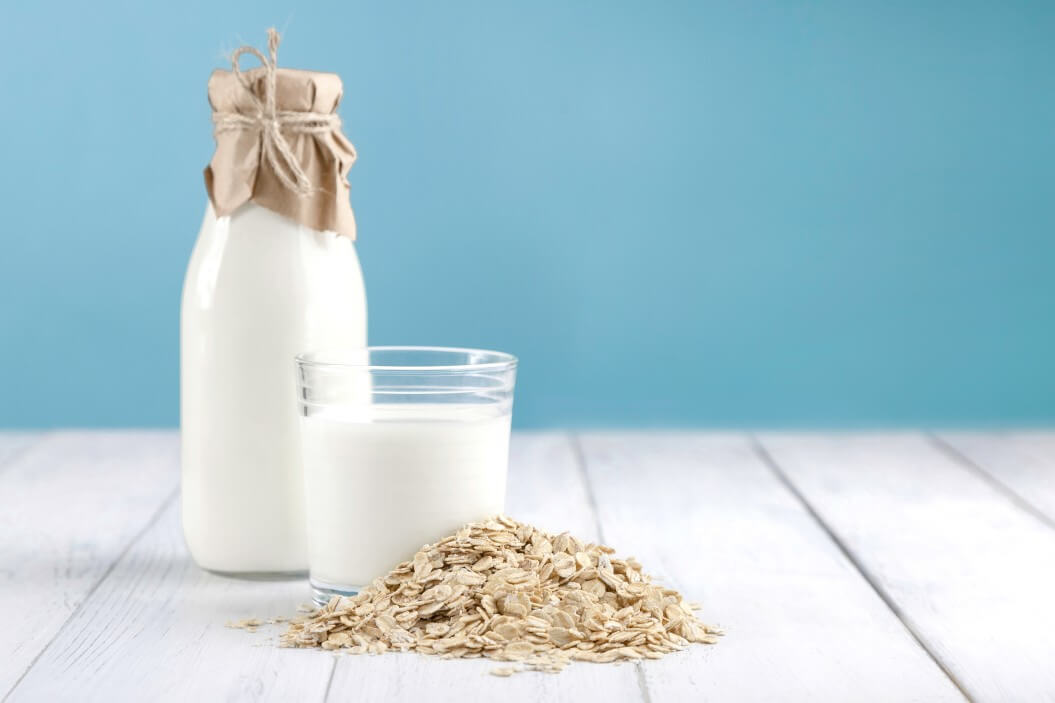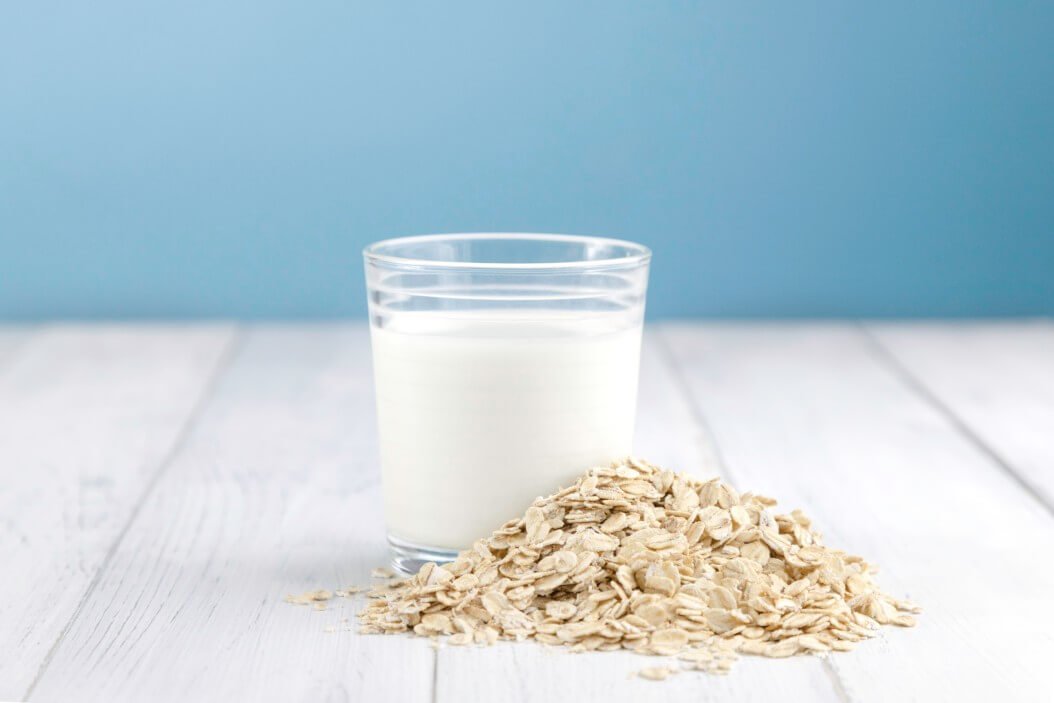Oat milk has become a popular alternative to dairy-based milk because of its high concentration of soluble fiber which is known to support the lowering of cholesterol.
But can oat milk actually lower cholesterol?
Oat milk is good for cholesterol, lowering low-density lipids or "bad cholesterol." Oat milk contains beta-glucan (β-glucan), which plays multiple roles in regulating the metabolism of cholesterol and the health of gut microbiota. Studies show that <3g of β-glucan per day decreases serum cholesterol levels.
Oat milk is increasingly the focus of scientific studies that reveal the benefits of oat milk on cholesterol and associated cardiovascular disease.
New studies suggest that oat milk may be one of the healthiest in managing high cholesterol. If you seek a milk beverage that improves your cholesterol health, please read on to discover the facts behind this wonder beverage.
How Does Oat Milk Help Cholesterol?
Studies have shown that oat milk consumption can lower your low-density lipoproteins (LDL), which is considered 'bad cholesterol" as opposed to high-density lipoproteins or HDLs. By reducing the LDL content in the blood, oat milk reduces the chance of atherosclerosis-related disease.
Low-density lipoproteins are molecules that combine a layer of lipid or fat and protein that your body uses to transport lipids in the blood.
If your LDL levels are too high, it sticks to the walls of your arteries, causing your artery walls to thicken and narrow through a process of atherosclerosis. This condition may lead to the following health issues:
- Heart disease, including angina and heart attack
- Stroke
- Coronary heart disease
- Peripheral artery disease
Here's a video from The National Library of Medicine that goes into detail about the good and bad cholesterol.
Does Oat Milk Lower Your Bad Cholesterol?
Oat milk lowers bad cholesterol in both human and animal clinical trials.
Double-blind, randomized trials have revealed a substantial lessening of serum cholesterol levels in subjects who consumed oat milk as opposed to test subjects who did not.
Researchers conducted a scientific study on 66 men with moderately high cholesterol levels in a randomized, double-blind experiment to measure the effects of oat milk and LDL levels.
Two groups were given either rice milk or oat milk for five weeks at 750ml a day and then evaluated according to their LDL levels.
The control group that ingested the oat milk showed significantly lower serum total cholesterol (6%) and lowered LDL levels (6%.)
Thus the study concluded that oat milk without insoluble fiber has cholesterol-reducing capacities.
Experts have attributed the cholesterol-reducing power of oat milk to the following reasons.
β-glucan Levels in Oat Milk and Increased Gut Viscosity
β-glucan is a type of soluble fiber found in oat products along with other proteins, lipids, vitamins, and minerals.
However, β-glucan is linked particularly with an increase in viscosity of the gut contents promoting bile excretion and the elimination of cholesterol through the bowel in the form of feces.
Studies show that Β-glucan alone can reduce serum cholesterol in multiple studies.
This research prompted the FDA to authorize health claims that oats and oat products lower cardiovascular disease risk when consumed in excess of 3g per day.
Watch this video from Livestrong for more information about beta-glucan.
Oat Products and Oat β-glucans Modulate Gut Microbiota
Recent studies suggest that the cardiovascular benefits effect of β-glucans in oats is not limited to the above viscosity attributes.
The studies indicate that the β-glucans in oats and the gut microbiota regulate cholesterol levels in the body.
When gut microbiota is healthy, they metabolize bile acids, which increases the excretion of bad cholesterol or low-density lipoproteins out of the body.
These studies suggest that β-glucans found in oats modulate these essential gut microbiota and bile acid responsible for keeping LDL levels regulated and thus improving heart health.
Oat β-glucans and Bile Acid Metabolism
Studies suggest that β-glucans found in oats lower cholesterol levels by regulating bile acid metabolism.
Viscous β-glucans may prevent the reabsorption of bile acids in the small intestine and promote the excretion of these bile acids.
This increase in bile acids promotes the body to synthesize bile acids from cholesterol which lowers LDL or "bad cholesterol" levels.
By drawing on the body's resources of LDPs, the harmful effects of bad cholesterol are reduced.
β-glucan Short-Chain Fatty Acids (SCFA) Production
Animal studies suggest a high probability that oat β-glucan stimulates SFCA production by gut microbiota.
Microbiota that produces SCFA are essential for human health, and studies show that the lack of such SCFA production increases the risk of disease.
These diseases include atherosclerosis mentioned above, a condition caused by elevated LDL cholesterol levels in the blood vessels.
The reduction in SCFA production is also linked to the occurrence of diseases such as:
- Diabetes
- Liver Cirrhosis
- Inflammatory bowel disease.

Which Oat Milk is Best For Cholesterol?
Not all oat milk is created equal for health issues such as cholesterol.
Some oat milk brands are loaded with ingredients that make them taste delicious but strip them of their health benefits.
When choosing oat milk that will aid your body in lowering cholesterol, make sure of the following:
Choose Unsweetened Oat Milk
Sweetened Oat milk that contains sugar will negate the potential benefits of cholesterol-lowering β-glucan.
High sugar levels make your liver create more LDLs and lower the good cholesterol HDL in your body.
The extra calorie content also creates more triglycerides, a type of blood fat that can affect your cholesterol health.
Choose Oat Milk Without Saturated Fats
Some oat milk brands, particularly 'Barista" blends,' are designed to foam and steam.
They often contain ingredients that are not necessarily heart-healthy.
These types of oat milk often include plant oils such as sunflower, canola, and safflower oils.
Oat milk high in omega-6 oils may elevate your triglyceride levels, so you should avoid milk containing high levels.
Opt for brands without added plant oils for a healthier alternative when sourcing your oat milk.

Other Factors to Consider in Healthy Oat Milk
- Make sure your oat milk is free from glyphosate residue. Glyphosate is an ingredient in the herbicide Roundup, another product from the justly vilified Monsanto group. The chemical has been implicated in massive lawsuits regarding its cancer-inducing effects.
- Avoid gums and other thickening agents. Emulsifiers such as Carrageenan and Polysorbate 80 cellulose gum have been linked to inflammatory bowel disease and metabolic disorders in mice.
- Avoid oat milk with high sodium. Although sodium or salt does not elevate your cholesterol per se, it can increase blood pressure and inhibits your kidneys from removing unwanted fluid in the body, affecting your heart health.
- Artificial sweeteners and additives. Artificial sweeteners are associated clinically with weight gain and obesity and are implicated in certain carcinogenic reactions in animal tests (and terrible for diabetics).
Related: Is Oat Milk Good For Testosterone?
Yes, Oat Milk Can Help Your Cholesterol!
As scientists discover more about the complex nature of gut microbiota and heart health, oats and oat derivatives such as oat milk increasingly show their beneficial effects on the human body, including cholesterol.
Oat milk impacts the body and particularly the gut on multiple levels linked to your cholesterol and heart health.
However, make sure you source the right oat milk to reap the full benefits of this healthy beverage.
